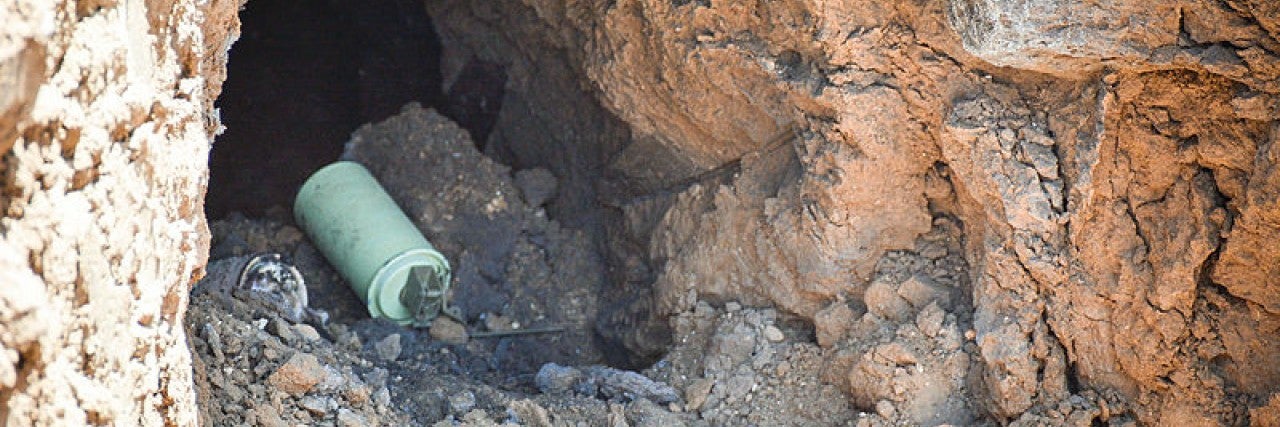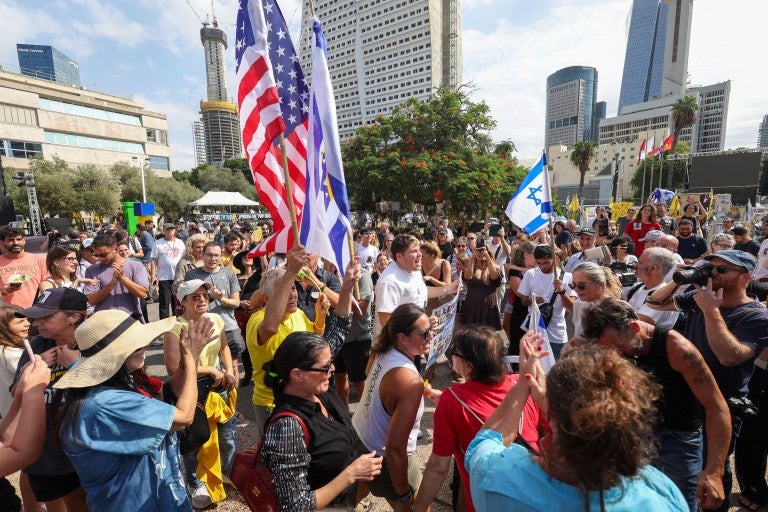November 15, 2017 — Israel
By Col. (Ret.) Dr. Eran Lerman
Major General Yoav Mordechai is Coordinator of Government Policy in the Territories (COGAT) and Israel's most senior Arabic-speaking military officer. As a former IDF spokesperson, he is quite adept at the art of public diplomacy. But on November 13, he delivered a very unsubtle message: if the Damascus-based leaders of Palestinian Islamic Jihad (PIJ) do not curb their lust for revenge, Israel will launch a powerful and focused response. This was a way of telling them that they are not safe anywhere, indeed, that their own survival might be at stake.
Why did Mordechai take this extraordinary step?
To understand this blunt deterrent message, it is necessary to go back to the events of October 30. That was when, after painstaking collection efforts involving various intelligence sources and using new, ground-breaking technology, the decision was finally made to destroy a tunnel known to penetrate well into Israel. As PIJ itself later openly stated, this was an attack tunnel designed to enable a raid into Israel for hostage-taking and, probably, acts of slaughter in nearby kibbutzim. Israel used air-dropped munitions to destroy parts of the tunnel immediately. The bodies of five PIJ diggers were later retrieved by Israeli forces in Israeli territory. They will be used to negotiate an exchange for the bodies of two Israeli soldiers held by Hamas since 2014, Oron Shaul and Hadar Goldin. In an attempt to break through and rescue or retrieve their losses, senior PIJ commanders were joined by Hamas tunnel specialists inside remaining segments of the tunnel, which, already destabilized, apparently fell on them, raising the overall number of dead to 14.
It was immediately clear that this major blow to PIJ – the organization lost a "Brigade" commander and his deputy – might trigger a retaliatory attack against Israeli civilian targets, either in the form of missiles from Gaza or a terror attack in the West Bank or elsewhere.
It was therefore necessary to do three things simultaneously:
1. Issue a strong deterrent message;
2. Use the Egyptian channel to pass a clear, unambiguous warning that a retaliatory attack, if allowed by Hamas, would have disastrous consequences and certainly derail Egypt's efforts to arrange a Hamas-Fatah reconciliation;
3. Nevertheless make it clear that Israel was not suddenly changing the rules of the game.
The deaths of the senior commanders were not by Israeli design. Interestingly, when the new IDF spokesperson made this point in public, he was denounced by political figures such as Naftali Bennet for sounding too apologetic for the terrorists' deaths. His purpose, however, was not to apologize, but rather to make it clear that Israel had not deliberately raised the level of confrontation. In other words, Israel did not intend to rewrite the rules, and thus Hamas and PIJ should not feel obliged to respond in kind.
For nearly two weeks, the deterrent effect was achieved. Mindful of the lessons of 2014, Hamas leadership does not want another round of warfare right now. Furthermore, the dire conditions in Gaza, the need to work out a political accommodation with the Palestinian Authority in Ramallah that would serve the interests of the Gazan population, and the effective leverage the Egyptians have built have all reduced Hamas’s motivation to act.
Hamas relations with PIJ are complex. Ever since it took control of Gaza in the violent coup of 2007, Hamas has tolerated the existence of a separate military entity right under its nose (while brutally repressing some Salafi-Jihadi groups with links to al-Qaeda and the Islamic State). The reason is simple: PIJ is a fully-owned Iranian proxy, and its leader in Damascus, Ramadan Shalah, takes his orders from Tehran. Hamas’s relations with Iran, on the other hand, can be described as "another proposition" – it works with Iran; whereas PIJ works for Iran.
Still, to break and repress PIJ would create a bad breach with the Iranian leadership that Hamas can ill afford. It can, however, exert subtle pressure on PIJ not to drag the whole Gaza region into a war without Hamas approval. Such pressure was apparently applied, in conversations between Hamas leaders and Shalah. The border stayed quiet. It seemed, for a while, that we had dodged this particular bullet.
Then came fresh indications that PIJ is still planning an act of revenge. Hence COGAT's fierce message of warning (which PIJ gleefully described as "a sign of fear and disarray" on the Israeli side). It was accompanied by putting the IDF on a higher level of alert and the deployment of Iron Dome batteries to protect potential target areas, including the Tel Aviv area.
To understand why PIJ might still defy Hamas restrictions and Egyptian pressure and take violent provocative action, one must take into account broader Iranian concerns and ambitions. As tensions rise in Lebanon and Yemen, and the ever-present Saudi-Iranian conflict becomes more acute, it is quite plausibly in Tehran's interest to stir up trouble, and then to be in a position to exploit it. Tarring both Israel and Saudi Arabia with the same brush, in the context of alleged Arab complicity in the "siege" and suffering in Gaza, would certainly serve Iran's purposes across the region.
Deterrence may nevertheless work in the end. Israel's ability to defend and retaliate renders a possible PIJ attack extremely counterproductive in every rational respect. But rationality has not always driven such situations. Pride, pressures, and politics may combine to bring PIJ and Hamas over the threshold. This is why the firm Israeli warnings were tempered by explanations designed to enable the Palestinian side to de-escalate if it so prefers. PIJ spokesmen have said, in response, that they will avenge the "crime" at a day and time of their own choosing – usually a standard way of relegating action to the indeterminate future, but in this case, perhaps a promise they still intend to keep.
Eran Lerman is the former deputy for foreign policy and international affairs at the National Security Council in the Israeli Prime Minister's Office. Prior to that, he served as director of AJC Jerusalem.


